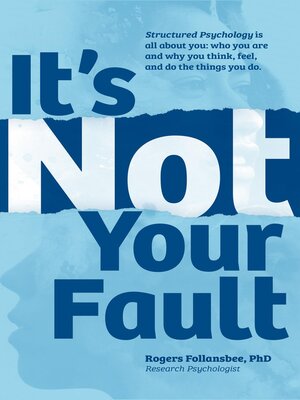
Sign up to save your library
With an OverDrive account, you can save your favorite libraries for at-a-glance information about availability. Find out more about OverDrive accounts.
Find this title in Libby, the library reading app by OverDrive.



Search for a digital library with this title
Title found at these libraries:
| Library Name | Distance |
|---|---|
| Loading... |
A New Way of Thinking
Since the advent of psychologists like Pierre Janet, Sigmund Freud, and Carl Rogers, researchers have wrestled to explain human conduct. Typically, psychology's most renowned thinkers have been experts at describing how we behave and offered-with surprising insight-their best assumptions as to the fundamental causes of that behavior. Unfortunately, instead of using science to find the answers to their queries, it's been intuition, insight, and good old-fashioned guesswork that's sparked their conclusions. As a result, the actual causes of the human condition have, up to now, remained elusive, and our general conduct no less mysterious.
You will notice that I have intentionally left intuition to the side and instead, applied a method of research that is firmly anchored to the same method of inquiry that all scientific discoveries have been loyal to over the decades: deductive logic. You will, however, not be needing any special degrees, diplomas, or certificates with fancy seals on them to understand what I have to say. All that will be required is a little common sense, a sprinkle of patience, and an open mind.
What are we looking for? I think that most of us would like to know how to improve our lives, reduce or eliminate conflict, feel more in control of our emotions, and have the wherewithal to shape our own destinies. But are such wishes reasonable? Self-help books that assure their readers that relief is just around the corner, motivational speakers, and general advice about how to successfully live our lives abound and yet, rarely lead to lasting success stories. Why? Because, in general, the self-help community forgets that each one of us is as similar to everyone else as we are different. As a result, one self-help system might secure relief for Doug in Des Moines but not work at all for Meredith in Miami. And what might leave Carlos overwhelmed with doubt may finally bring Ling the happiness she'd always dreamed of. My hope is that by understanding the true causes of human behavior, not only will we all be better equipped to alleviate the psychological distress many of us feel, but definitively understand ourselves and others with far more accuracy.







